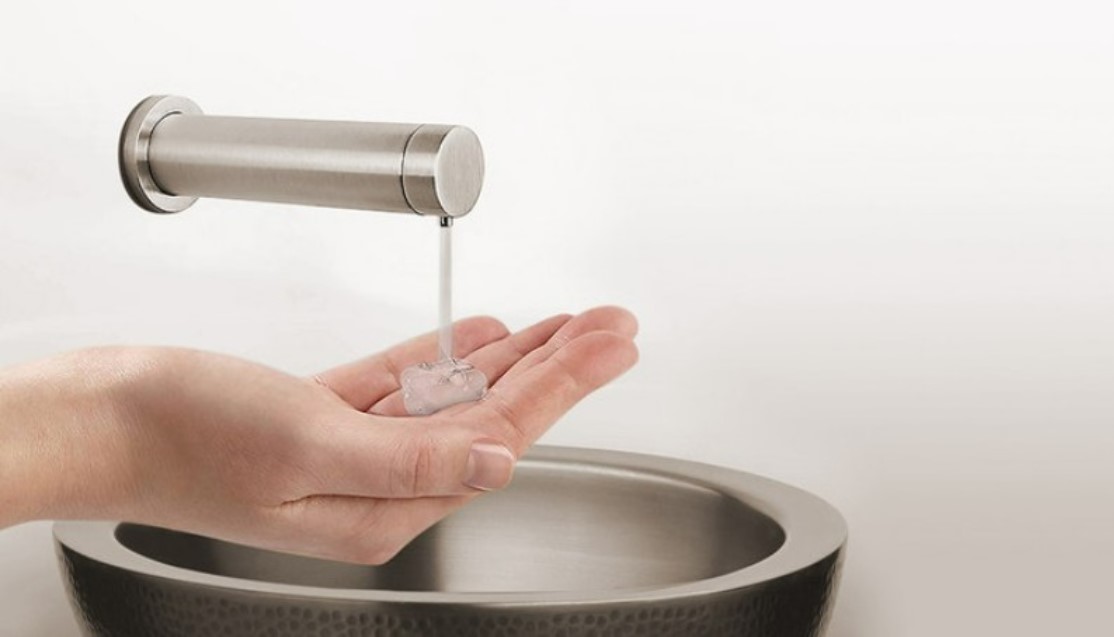In today’s fast-paced world, maintaining proper hygiene is of utmost importance. Whether it’s in public restrooms, restaurants, hospitals, or offices, cleanliness and sanitation play a vital role in ensuring the well-being of individuals. With the advancement of technology, commercial automatic soap dispensers have emerged as a game-changer in the realm of hygiene. In this blog, we will explore the features, benefits, and impact of these innovative devices on the cleanliness standards of commercial spaces.
- Efficient and Touchless Operation: One of the key advantages of commercial automatic soap dispensers is their touchless operation. Traditional soap dispensers often require physical contact, which can become a breeding ground for germs and bacteria. Automatic soap dispensers, on the other hand, utilize motion sensors or infrared technology to detect the presence of hands and dispense the appropriate amount of soap without any physical contact. This touchless operation not only minimizes the risk of cross-contamination but also promotes a hygienic and user-friendly experience.
- Enhanced Hygiene Standards: The primary purpose of commercial automatic soap dispenser is to ensure optimal hygiene standards in public spaces. By eliminating the need for physical contact, these dispensers reduce the transmission of germs, viruses, and bacteria, thereby preventing the spread of diseases. They provide a consistent and controlled amount of soap with each use, promoting effective handwashing practices. Furthermore, automatic soap dispensers are often designed with sealed cartridges or refillable reservoirs, preventing contamination and maintaining the integrity of the soap.
- Cost-effective and Environmentally Friendly: Commercial automatic soap dispensers are not only hygienic but also cost-effective in the long run. These dispensers regulate the amount of soap dispensed, reducing wastage and ensuring efficient use. Unlike traditional dispensers, which are prone to accidental spills or excessive use, automatic soap dispensers provide an optimal amount of soap with each use, leading to significant cost savings. Moreover, these devices often use refillable cartridges or bulk soap systems, reducing the consumption of single-use plastic soap bottles and minimizing environmental impact.
- Improved User Experience: Automatic soap dispensers offer a seamless and convenient user experience. With their touchless operation, users can easily access soap without the need for physical contact or pressing buttons. The motion sensor technology ensures quick and reliable soap dispensing, saving time and effort. Additionally, many commercial automatic soap dispensers incorporate LED indicators to signal soap levels, ensuring timely refills and uninterrupted service. These features contribute to a positive user experience, enhancing customer satisfaction in commercial settings such as restaurants, hotels, and shopping malls.
- Versatility and Customization: Commercial automatic soap dispensers come in a variety of designs, sizes, and styles to suit different settings and preferences. From sleek and modern designs for upscale establishments to durable and vandal-resistant models for high-traffic areas, there is a dispenser for every need. Some models even offer customizable features such as adjustable soap volume and different soap types (e.g., antibacterial, foam, or lotion). This versatility allows businesses to tailor their hygiene solutions to meet specific requirements and create a more personalized experience for their customers and employees.
Conclusion:
Commercial automatic soap dispensers have become indispensable tools in maintaining high hygiene standards in public spaces. With their touchless operation, enhanced cleanliness, cost-effectiveness, and improved user experience, these devices have revolutionized the way we approach hand hygiene. As businesses and organizations prioritize the health and well-being of their customers and employees, automatic soap dispensers have emerged as a vital component in their hygiene protocols. By embracing this technology, commercial spaces can create a safer and more hygienic environment for everyone, promoting a healthier society as a whole.

